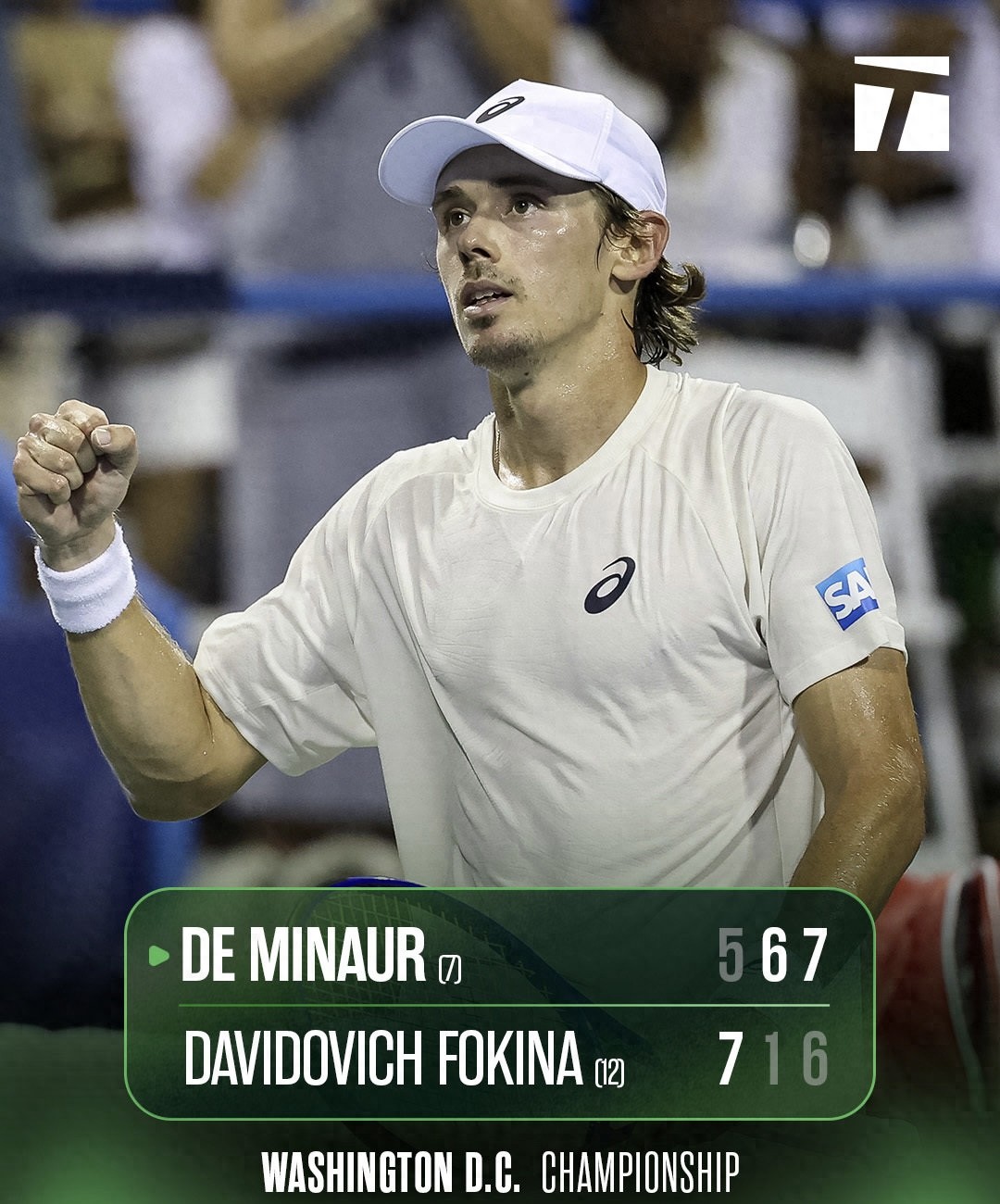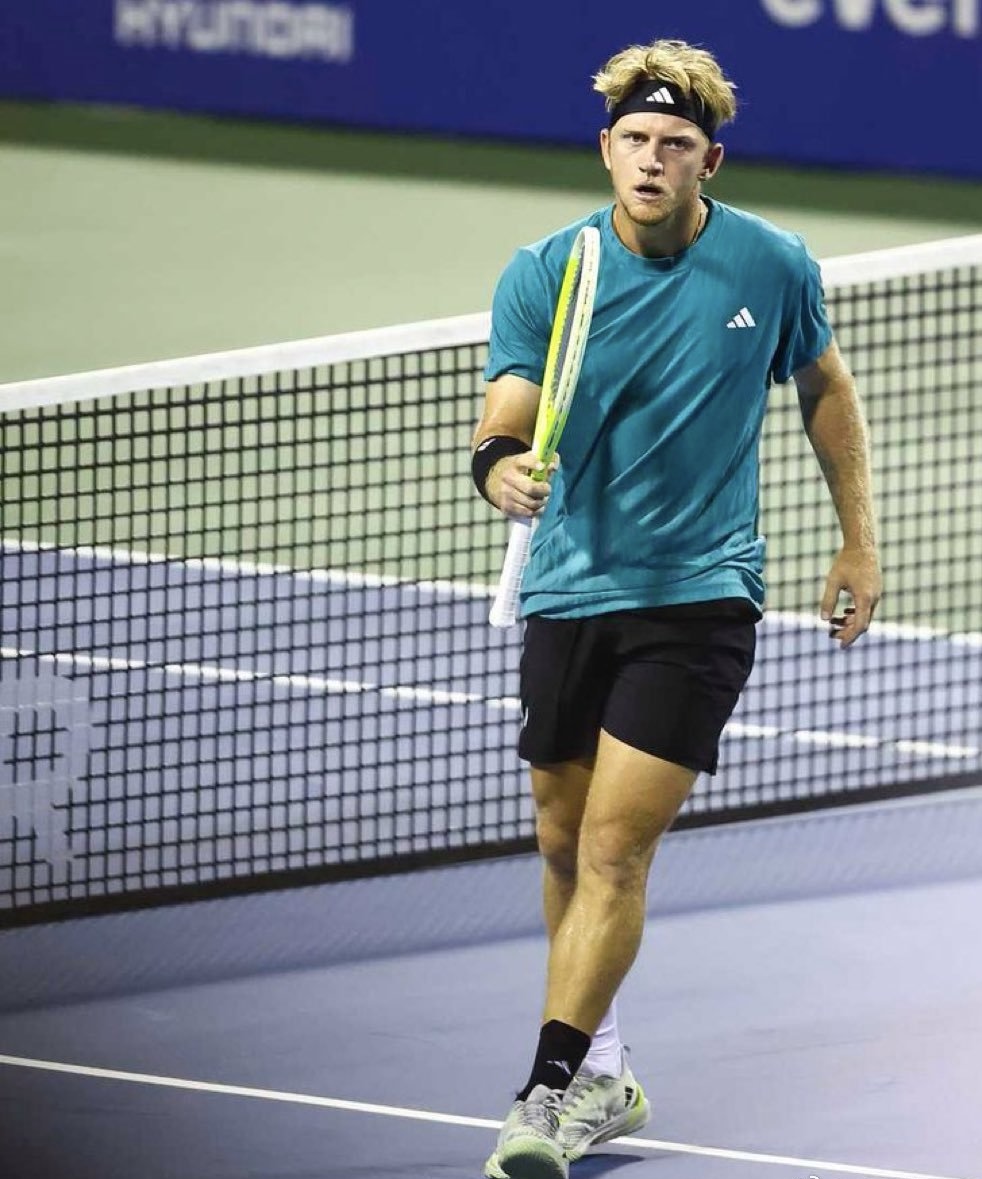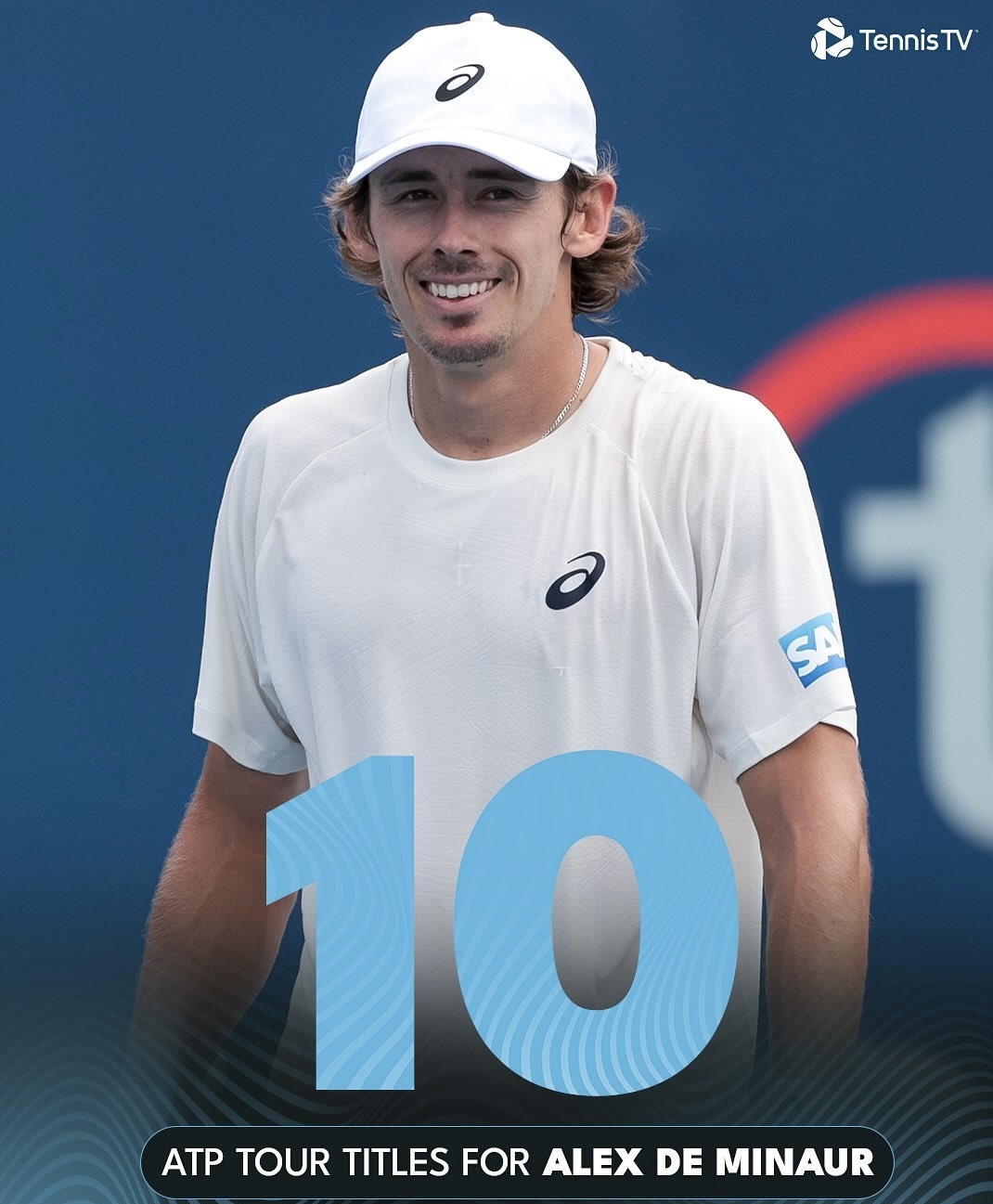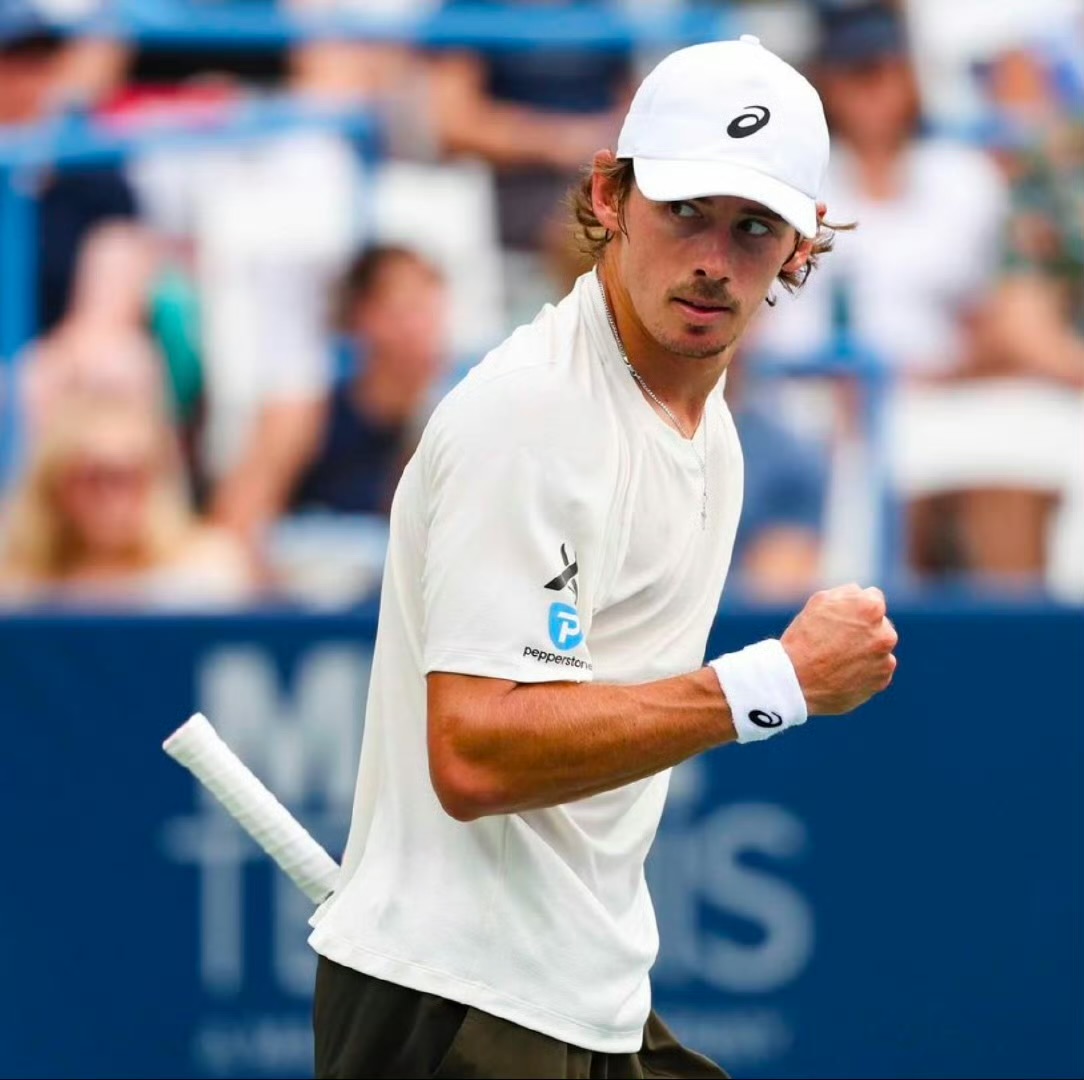Washington's Song of Ice and Fire: De Minaur's Composure and Fokina's Torment
On that summer night Sunday, the ATP 500 Washington final showcased a lively teaching moment regarding champion psychology. Australia's young player De Minaur first broke his opponent Fokina's serve while he was serving for the championship in the deciding set. Then, facing three championship points against him, he executed a stunning comeback, ultimately defeating the 12th seed Davidovich Fokina with a score of 5-7, 6-1, 7-6(3), claiming his first title of the season and the tenth of his career, while cruelly adding to Fokina's "championship nightmare." This three-set battle starkly revealed the essence of professional tennis: in top-level matches where the technical gap is minimal, it is often not the racket that determines the outcome, but the mental strength of the player holding it.

When the Spaniard held three championship points in the final set, the crowd at the center court was likely ready to cheer for Fokina's first career title. However, what followed was a classic case of psychological collapse in professional tennis: Fokina's baseline shots suddenly lost their precision, transforming from a sharp fighter who had dominated earlier rounds into a flustered beginner. This marked the second time this season that the Spaniard had faltered with championship points in hand; in February at the Delray Beach event, he similarly squandered two championship points and lost to Kecmanovic. Behind the bitter record of four consecutive runner-up finishes lies the "mental demons" that always arrive at critical moments, an invisible fear that consumes a player's rationality as they approach the finish line.

In stark contrast to Fokina's panic was De Minaur's almost mechanical calmness. The Australian player, known for his speed, exhibited a maturity beyond his 26 years when facing dire situations in the final set. He adjusted his shot selection with the precision of an actuary: adding topspin to ensure rallies when Fokina's emotions fluctuated, and suddenly changing direction to attack when his opponent hesitated. This meticulous control of the game's rhythm led him to an impressive record of 9 wins and 1 loss against lower-ranked opponents in his 19 final appearances. After the match, De Minaur stated, "I never think about the scoreboard; I just focus on executing the next point." This ability to deconstruct the match into numerous independent units is what fundamentally distinguishes champion players from merely good ones.

Fokina's predicament raises an intriguing question: does a "curse of the strongest winless player" exist in contemporary men's tennis? The Spaniard possesses top-notch backhand skills, exceptional court coverage, and a dazzling record of victories over elite players like Djokovic, yet he repeatedly falters on the final stage. This phenomenon inevitably brings to mind early-career Murray or Thiem, who also faced multiple final defeats before finally breaking through their psychological barriers. Professional tennis data analysts point out, "Fokina's second serve win rate on crucial points dropped by 23% compared to regular points; this technical cliff exists only on a psychological level."

The contrast between De Minaur and Fokina resembles the extremes of the tennis world. The former embodies the unique "bulldog" spirit of Australian players since Hewitt, while the latter continues the strange combination of delicate technique and fragile psychology. This Washington final may become a turning point in both their careers: De Minaur officially joins the double-digit title club, steadily advancing towards the elite group; Fokina, on the other hand, faces the cruelest question in professional sports: when technical talent meets psychological ceilings, where lies the key to breakthrough?

On the lonely long road of professional tennis, the championship trophy never betrays the true strong. De Minaur proved his dominance in equally matched contests with his tenth title, while Fokina's tragedy reminds us: on the ladder to the summit, the most difficult steps to overcome are often not set by opponents, but built by one's own mind. Once a certain level of technical proficiency is reached, championships cease to be rewards for ability, but rather tests of psychological resilience. This summer in Washington, these two young men illustrated the sport's most profound truths in strikingly different ways.(Source: Tennis Home, Author: Mei )







 Links
Links
 Contact
Contact
 App
App


